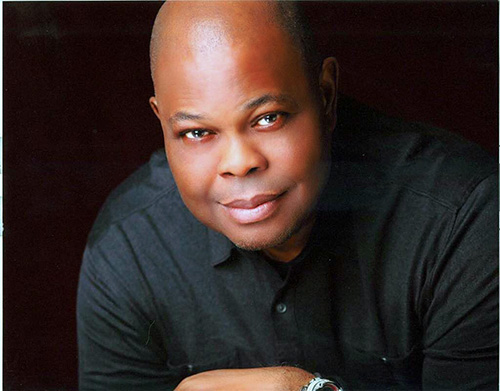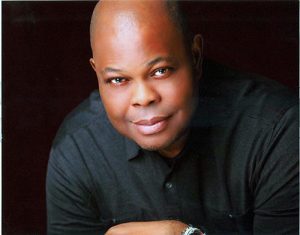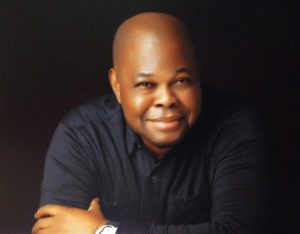In the last few months or so, our television screens have inundated us with a series of commercials, or what may be called infomercials, titled, “Welcome To The Fearless Generation”. These very carefully orchestrated and crafted short films, sponsored, I believe, by Herbert Wigwe, a successful banker, feature a retinue of brilliantly successful Nigerians from all walks-of-life, all espousing their various achievements and accomplished milestones.
The essence in Wigwe’s initiative, I think, is to showcase some positive attributes of our people, and to portray that in the midst of the mayhem in our land, there is still some glimmer of hope. This clever and professionally arranged TV programme is very commendable, as much as it beams some form of umbriferous spotlight on the many chicaneries bedeviling our country now.
What stands out in Wigwe’s initiative, is that it is anchored on the values of education in any society. The adage that an “educated mind is a useful thing…”, brings home the importance of education, not only in the development of the mind, but in that of being the key driver for social and economic enhancement and advancement.
The persons who feature in these short narrations all speak glowingly with eloquence and poise about education being an essential tool for human capital and infrastructural development, blaming the lack of, or deficient education for being responsible for the ills of our society. One of the participants, the brilliant lawyer, Fabian Ajogwu put it succinctly thus: “Africa cannot afford to stand still… Knowledge is the difference between Africa in our imagination and the one we currently strive to sustain… Knowledge produces the gap between dreams and reality, knowledge is the antidote to fear.”
Herbert Wigwe in soliciting the help of these individuals to advance his initiative, identifies education as a necessary element in the development of any nation, and in the building of a bright, prosperous and sustainable country. He has personally intervened to make bold his initiative by establishing a university which seeks to deliver qualitative education that will be innovative, and a beacon of hope for our debilitated education sector.
I am a strong believer that although education is a social enterprise, there must be a strong advocacy for private and community effort in the provision of qualitative education for our young citizens. I also believe that for a country to grow and become productive, its educational systems must be well catered to, otherwise, the country and its people will face grave and massive social, political and economic degradation that will deprive it of the capacity to function progressively in all spheres. In this sense, and to a significant extent, the political and economic stability of a country, is invariably tied to the sustainability of a good standing educational system.
Over many years, my mind has become very agitated and disturbed by the deteriorating state of Nigeria’s educational system. The scourge of the degradation sweeping through the country’s educational institutions in the past decades, is threatening the very foundation of its values and visions. It has become abundantly evident, that there is a direct correlation between the failing standards of education in Nigeria, and bad leadership, corruption and the horrible conditions of life and existence. Perhaps, it may be safe to say that the prolonged years of military dictatorship, the attendant visionless leadership, corruption and the sustained mismanagement of the country’s economic resources contributed largely to the very rapid fall in our educational standard, leaving a desolate and an apoplectic citizenry.
The fact that Nigeria accounts for one of the world’s largest oil wealth, and still possesses one of the world’s lowest per capita income is a real puzzle. The tragedy of Nigeria’s condition is so profoundly disgusting when you look at other resource- poor countries like South Korea, Japan, Finland, Singapore and others, and observe what they have achieved. These countries without much natural endowment, relied on the development of their educational sectors, which in turn nurtured good citizenry, purposeful leadership, and stable governments that created instruments for the provision of quality standard of living for their people.
Nigeria overwhelmingly presents a good example of how people who live in a rich-resource country can wallow in abject poverty and misery. The economic consequences of inadequate education, is pervasive corruption, wanton ignorance and indolence, which render the vast majority of the population highly impoverished. To reverse this trend, we must start by borrowing examples from other countries, especially in Asia where rigorous reform agenda pioneered through massive literacy programmes helped in providing visionary and ideas-oriented leadership that strengthened the political system, the legislative and the judiciary. Because of this, we must recognize the truism that no human society or nation can advance or progress beyond the value and quality of the education and learning they provide and deliver to their citizens.
A critical assessment of the pervasive lack of proper education in Nigeria, constitute a terrible hazard and obstacle to the growth and development of our society. Indeed, the primary factor for Nigeria’s stunted and stagnating progression, is her educational deficiencies which produce and churn out, with constant rapidity, abysmally retrogressive leadership and redundant followership.
Many factors are responsible for the dearth of education in Nigeria. Amongst them is the uncontrolled and burgeoning population of the country. In my current book; Biafra, The Horrors of War, I wrote about the myriad of problems facing Nigeria after the civil war, identifying population explosion without a corresponding economic growth, as presenting a major challenge to the country.
Nigeria’s population has grown out of proportion in comparison to other countries. At independence in 1960, Nigeria’s population stood at 45 million, less than the population of the United Kingdom which stood then at 52 million. Today, Nigeria’s population has ballooned to over 200 million, while that of the UK stand at 67 million. The result of this irresponsible population explosion, is that a very high number of destitute children and youths with little or no education have become a heavy burden on the society, causing mayhem and trouble. The society has created millions of uneducated and idle people with no skills, no jobs, no money, no hope, no housing, and with nothing to lose, but to turn to lives of crime and anarchy. Without education, the country is dying a slow, excruciating and painful death.
If anything is predictable about the 21st Century, it is that change is constant and will occur at faster intervals than ever before in our history. A world renowned author, Malcom Gladwell in his bestseller, “The Tipping Point” speaks on how leaders in education, business and the media should identify the drivers for education in the next 20 years. The demographic, social, economic, political, and scientific trends that will have the greatest impact on education over the coming decades include: Demographic reality, Social forces, Economic trends, The shifting political scene, and Science and technology moving at warp speed.
Looking globally at education, the 21st Century is a time of challenge and opportunity for schooling systems worldwide. To survive and thrive, schools will have to address the following five dimensions of sustainability: Financial sustainability; becoming more efficient and less costly. Environmental sustainability; teaching children to nurture the earth and to be less wasteful. Global sustainability; becoming more networked internationally through computers and exchange programs and less parochial in outlook. Programmatic sustainability; becoming more focused on the skill and values that the 21st Century marketplace will seek and reward, and be less narrowly isolated in a traditional discipline of approach to teaching and learning. Demographic sustainability; becoming more inclusive and representative of the school aged population, and less unapproachable financially and socially.
As you can see from the aforementioned list of 21st Century keys to educational sustainability, Nigeria is lagging far behind.
What makes Wigwe’s incursion into instituting changes in this malaise remarkable, is that from many indications, the problem in our education sector has become a national calamity and shame. A sector that is supposedly responsible for the grooming of teachers, professionals from all fields, and the leaders of tomorrow, has become dysfunctional and almost comatose. This is even more disturbing, because for any nation to be and remain relevant in today’s globally competitive environment, it must have a well planned and properly executed qualitative educational system. Presently, at all levels of our educational system, the decay and stench in the school structures, the infrastructure, the curriculum development, policy formation and implementation, and funding have become grossly appalling and utterly disgraceful.
The data available on the state of our education presents pitiable situations. Many of our children who ought to be in school are out roaming aimlessly on our streets. The level of failure of students seeking to enter higher institutions is exponentially high, and for those who pass, the combined number of universities and other institutions of higher learning do not have the required capacity to admit a significantly large number of them. It is clearly evident that Nigeria is on the brink of a total collapse, and that unless the Government ensures a reversal of this ugly trend, we may be heading to a catastrophic end.
Despite the dire situation facing our education today, responsible Nigerians such as Wigwe, and some that have intervened in the past, have been provided with the opportunity to introduce their own “tipping point” in order to alter our destined projected future of doom. They must tackle with alacrity, the hopelessness that has become our bane. This can be achieved through those few people who hold so much economic power, and can bring changes to our social, economic, and other epidemics. The reaffirmation of the potential for this category of citizenry to effect changes can be seen through the initiative of Wigwe and a few others.
However, it is pertinent to point out that the proliferation of schools and universities without a commensurate quality and quantity of teaching staff to meet up with the rate in student enrolment, is a major contributing factor to the falling standard of education in Nigeria, and equally responsible for the global low rating of Nigerian graduates. The backdrop to this, is that our institutions, in as much as they are so poorly set up and funded, lacking in proper and adequate infrastructure, must find missions and set goals for themselves to achieve some level of proficiency. There must be very well defined and diversified curriculum, with more emphasis on the development of science education and in the fields of research and development.
There are many facets to our education dilemma. One can only imagine how the persistent high unemployment rate for our young graduates is a phenomenon that has reinforced their disconcerting reluctance for the pursuit of education. The downward trend where graduates spend several years after graduation looking and not finding employment, and with the very few that do, ending up receiving pittance for salaries and remaining underutilized and redundant, is disturbing.
The poor performance of our economy and the disgraceful mismanagement by its managers, account for the incurable cluelessness in all the sectors of the economy. This has, over decades, affected mostly the allocation of adequate resources to education. The incursion of private schools in the sector, no doubt provides some relief, but fails to arrest the fast decline in the quality and also the quantity of education needed to lift us out of this quagmire.
There is a direct and consequential correlation between the chronic unemployment, the underutilization of our human resources capacities and capabilities, and the dearth of education in Nigeria. When those who leave school cannot find gainful employment, they become frustrated and succumb to lives of abject poverty, and eventually into criminality and thuggery.
To contain unemployment, I have argued in my many other essays, that we must focus, as a nation in pumping up our National Productivity Index or our Gross Domestic Product to be able to become productive, create jobs and become once again, a country that produces what it consumes, and takes care of its young workforce by making them productive agents of a progressive society.
The fundamental structure and initiatives for the reform of the Nigerian educational sector must not be left for government alone. The private sector, communities, development groups, and individuals, must be involved in the creation of an educated country, that will in turn nurture a good society, an informed and responsible citizenry, and a globally strong, reliable and competitive Nigeria in the 21st century and beyond.
What is most poignantly reprehensible and perfidiously irritating, is that we live in an era in our checkered and soiled history, where our governments budget and allocate more of our scarce funds to luxury items like yachts and expensive vehicles to satisfy the crapulous greed of our profligate politicians, than they allocate to the resuscitation of our dying education.
Herbert Wigwe who is the founder of the Wigwe University and the initiator of the short TV narration; “Welcome To The Fearless Generation”, has done an outstanding innovation in our education sector. The part of the TV videos that accompany his good gestures and the Fearless Generation appellation became some sort of an aporia; an irresolvable contradiction and a logical disjunction to say the least. As good an intention as it is, the portentous use of the word “fearless”, when in actual sense everything around us has been fearful, scary, frightening and petrifying, is somewhat a taradiddle and stretching the reality pretentiously.
Even as we must recognize and applaud the altruism and the good motive and intension behind Wigwe’s Fearless Generation theme, its sanctimoniousness and its preachily priggish virtuousity, must never be lost to our country’s tralatitious malfeasances. Everything about our country from its inception, point to Generations of Fearless thieves, crooks and criminals who have eternally been fearless in stealing and looting our treasury dry; fearless thieves parading the corridors of our public and private lives. We have minted fearless generations that are experts in the contravention of God’s sacred commandments; stealing, hating and killing their neighbors with careless abandon without any inhibitions. We are indeed, a fearless generation that has been pernicious to everything that is fearful and peerlessly good for our country.
Fela Anikulapo Kuti, the legend and the most prominent conscience of our country, sang about how Nigerians have been Fearful of speaking truth to power, or of doing anything worthwhile to change our generational curse and docility. The metaphor of Fela’s songs became the beaming light to our everlasting fearfulness. To me, Fela was one of the very few who were FEARLESS. The rest of us, are as Fearful; “… for the tins wey we no know… i no wan die, papa don quench, mama dey for house …”
We are a FEARFUL GENERATION, and our lives have been filled with fear and trepidation from our past, our today, and we ought to, with a very high level of prospicience, fear the future.
Dr. Okey Anueyiagu
The author of Biafra;
The Horrors of War,
is a Political Economist.



